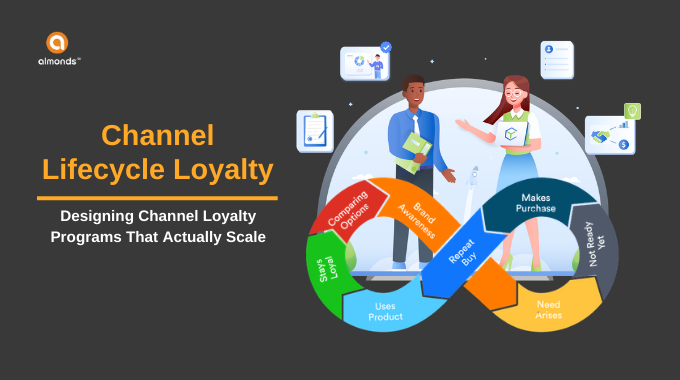The shift toward privacy-first marketing has paved the way for Zero-Party Data and Artificial Intelligence (AI) to reshape loyalty programs in India. With Google’s announcement to phase out third-party cookies, marketers have been looking for sustainable alternatives.
This creates a greenfield opportunity for Indian brands to rethink loyalty strategies and enhance engagement with channel partners and customers.
Zero-Party Data: The Cornerstone of Indian Loyalty Programs
Zero-Party Data (ZPD) refers to data that customers willingly share with a brand, such as preferences, feedback, and intentions. A report from Forrester found that 81% of marketers consider Zero-Party Data essential for personalizing the customer experience, making it a critical asset in today’s privacy-conscious market.
In the Indian context, brands are increasingly using ZPD to create tailored experiences, especially in industries like FMCG, automotive, and retail.
Gartner’s 2022 report on customer data management highlights that 75% of Indian brands will incorporate Zero-Party Data into their loyalty programs by 2025, emphasizing its growing importance.
With consumers seeking more control over their data, ZPD is helping brands build stronger, more trustworthy relationships, which in turn fuels brand loyalty and advocacy.
AI-Powered Personalization: Transforming Loyalty Strategies
The integration of Artificial Intelligence (AI) into loyalty marketing is revolutionizing the way brands interact with their customers and channel partners. According to a McKinsey report on AI in marketing, companies that implement AI-driven personalization see 10-15% higher marketing ROI. In India’s highly competitive market, AI allows brands to analyze customer and partner data in real-time, delivering hyper-personalized rewards and experiences.
For instance, an AI-powered B2B loyalty platform can help brands segment their channel partners and offer rewards tailored to their business performance. This level of customization fosters stronger relationships and encourages repeat business. According to Statista, the Indian AI market is projected to grow to USD 7.8 billion by 2025, making it an essential tool for brands looking to enhance loyalty program management.
Combining Zero-Party Data and AI for Effective Loyalty Marketing in India
The combined use of Zero-Party Data and AI allows brands to deliver highly personalized experiences while respecting privacy. This has led to a rise in brands incorporating these technologies into their loyalty programs.
According to Salesforce’s State of Marketing report, 84% of customers expect personalized interactions, and 73% are more likely to stay loyal to brands that provide relevant offers. For Indian brands, especially in sectors like electronics and pharmaceuticals, this presents a unique opportunity to engage channel partners and consumers more effectively.
Using AI, brands can offer real-time rewards based on Zero-Party Data, ensuring that offers resonate with the customer or channel partner’s current needs. For instance, a pharmaceutical company could offer incentives to distributors based on their product preferences and past performance, creating a mutually beneficial relationship.
Personalization Beyond Data: Fostering Lasting Loyalty Marketing in India
Personalization is not just about using data – it’s about creating meaningful, long-lasting connections. A PwC study found that 63% of Indian consumers are willing to share personal data in exchange for personalized rewards and experiences, reinforcing the need for brands to deliver genuine value. This applies to both consumer-facing loyalty programs and B2B loyalty platforms, where AI-driven personalization helps brands align rewards with the specific needs of channel partners.
According to a Deloitte study, brands that successfully leverage AI-driven loyalty programs see a 20-30% increase in customer retention. In India, where customer loyalty is highly prized, this statistic highlights the immense potential for brands that adopt personalized, data-driven loyalty strategies.
Conclusion
The future of loyalty marketing in India lies in the effective use of Zero-Party Data and Artificial Intelligence. By embracing these technologies, brands can create personalized, privacy-compliant loyalty programs that engage both customers and channel partners. As the demand for personalized rewards grows, Indian brands that adopt these strategies will be well-positioned to thrive in an increasingly competitive market.
By integrating Zero-Party Data collection and AI-powered personalization, loyalty programs in India can deliver real value to partners and customers alike, ensuring long-term engagement and fostering brand advocacy.







